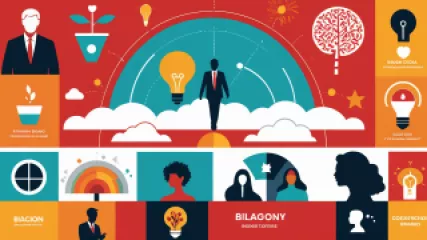10 Best Practices for Building a Psychology-Driven Brand
10 Best Practices for Building a Psychology-Driven Brand
In the ever-evolving world of branding, the importance of understanding consumer psychology has become paramount. Brands that can effectively tap into the emotional and cognitive processes of their target audience are the ones that often enjoy the greatest levels of loyalty, recall, and overall success. In this comprehensive list, we delve into 10 best practices for building a psychology-driven brand that resonates deeply with your audience.
1. Understand Your Target Audience's Psyche
The foundation of any successful psychology-driven brand lies in a deep understanding of your target audience's psyche. Conduct extensive market research, user interviews, and psychological profiling to gain insights into their values, motivations, pain points, and decision-making processes. This knowledge will inform every aspect of your branding strategy, from the visual identity to the tone of voice and messaging.
2. Cultivate an Emotional Connection
Effective branding is not just about conveying information – it's about eliciting an emotional response. Leverage emotional branding techniques to create a strong, lasting connection between your brand and your audience. This could involve tapping into universal human emotions, such as nostalgia, aspiration, or a sense of belonging, or addressing the specific emotional needs and desires of your target market.
3. Leverage Cognitive Biases
Human decision-making is heavily influenced by various cognitive biases – mental shortcuts and heuristics that shape our perceptions and behaviors. By understanding and strategically applying these biases, you can design branding elements and marketing campaigns that resonate more effectively with your audience. Some examples of cognitive biases to consider are the halo effect, the framing effect, and the anchoring effect.
4. Develop a Distinctive Brand Personality
In a crowded marketplace, a distinctive brand personality can be a powerful differentiator. Crafting a unique, relatable, and consistent brand persona that aligns with your target audience's values and preferences can foster a strong sense of brand loyalty. Leverage archetypes, brand storytelling, and brand voice to bring your brand personality to life.
5. Prioritize Sensory Branding
The human brain processes sensory information in a way that can profoundly influence our perceptions and emotional responses to brands. Incorporate sensory branding elements, such as distinctive visual cues, captivating soundscapes, or even unique scents and textures, to create a multisensory brand experience that leaves a lasting impression on your audience.
6. Embrace Psychological Pricing Strategies
The way you price your products or services can have a significant impact on consumer perception and purchasing behavior. Explore psychological pricing strategies, such as the left-digit effect, the charm pricing, and the decoy effect, to influence your audience's perceived value of your offerings and drive more conversions.
7. Leverage the Power of Scarcity
Humans have a natural tendency to place a higher value on things that are perceived as scarce or limited. Incorporate scarcity principles into your branding and marketing, such as limited-time offers, exclusive product releases, or a sense of urgency, to tap into the psychological desire for scarce resources and drive increased sales and engagement.
8. Personalize the Brand Experience
In an era of increasing consumer personalization, brands that can deliver tailored experiences are more likely to build strong, long-lasting relationships with their audience. Leverage data, AI, and personalization technologies to create customized content, product recommendations, and communication that cater to the unique needs and preferences of each individual customer.
9. Harness the Power of Social Proof
Humans are heavily influenced by the opinions and behaviors of others, a phenomenon known as social proof. Incorporate elements of social proof, such as customer testimonials, user-generated content, influencer endorsements, and social media shares, to enhance the credibility and trustworthiness of your brand in the eyes of your target audience.
10. Continuously Evolve and Adapt
Consumer psychology is constantly evolving, and successful psychology-driven brands must be agile and responsive to these changes. Continuously monitor market trends, consumer behavior, and the latest psychological research to identify new opportunities and adapt your branding strategies accordingly. Remain nimble and open to experimentation to stay ahead of the curve and maintain a strong, relevant connection with your audience.
Building a psychology-driven brand is an art and a science, requiring a deep understanding of human behavior, cognitive processes, and emotional drivers. By implementing these 10 best practices, you can create a brand that not only stands out in a competitive landscape but also resonates deeply with your target audience, driving increased brand loyalty, engagement, and long-term success.
Remember, the key to successful psychology-driven branding lies in your ability to empathize with your audience, tap into their subconscious desires and motivations, and deliver a holistic brand experience that leaves a lasting impression. Embrace these principles, and watch your brand soar to new heights.






